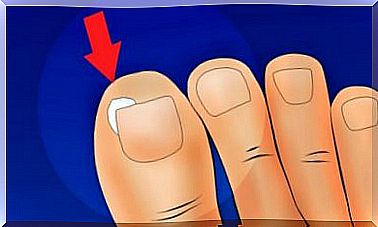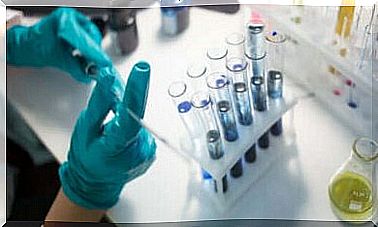How Does Caffeine Affect The Brain?

Almost all of us know the basic effects of how caffeine affects the brain: It gives more attention and revitalizes us. That is why it is so common that coffee is the first drink we have in the morning, as it helps us wake up to everyday life. But does caffeine affect the brain in any other way?
The truth is that the effect of caffeine on the brain is not limited to increasing the state of attention, but goes much further. Experts agree that drinking coffee in moderation is a healthy practice. It is estimated that up to 80% of adults in the world drink coffee.
But when we drink coffee in very large quantities, it causes various problems. Similarly, another of the effects of caffeine on the brain is the effect of generating addiction. This is that we experience withdrawal syndrome when we stop drinking it.
Let’s take a closer look at the subject.
How does caffeine affect the brain?
As we know, the active ingredient in coffee is caffeine, and this is a psychoactive substance. In fact, it is the most widely used psychoactive substance in the world. It belongs to the alkaloid family, which also includes drugs such as morphine, nicotine or cocaine.

The effect of caffeine on the brain is very powerful. From the neurobiological point of view, it changes the state of consciousness, activates or increases alertness. It also affects cognitive processes and has psychological effects on mood.
This is because caffeine is able to alter the action of neurotransmitters in the brain. In addition, coffee and caffeine also affect another important number of processes in the organism, such as digestion, metabolism and vision.
Caffeine, adenosine and adrenaline
From the moment we wake up, and throughout the day, the body naturally produces a substance called adenosine. This is responsible for the feeling of tiredness and makes us feel sleepy at night. If we drink coffee, this process can change.
Caffeine is an antagonist of adenosine, which simply says that one blocks the effect of the other. The result is that we do not feel sleepy or that we do not feel it in the right intensity. At the same time, this interaction between caffeine and adenosine causes the pituitary gland to release hormones that stimulate the adrenal glands to produce adrenaline.

By having caffeine in the brain, with adenosine initially blocked and adrenaline production increased, it is as if we are sending a warning to the body. This leads to increased heart rate and more blood pumping, as well as more agitated breathing.
All of this makes us feel more anxious and irritable. Another side effect is that caffeine prevents the reabsorption of dopamine, a neurotransmitter that also affects the process of fatigue and rest. Dopamine that is not reabsorbed increases concentration, and this is part of the explanation for why we become addicted to coffee.
Caffeine affects the frontal lobes of the brain
The team of Dr. Florian Koppelstaetter, from the Medical University of Innsbruck in Austria, presented a study on the subject. In this study, they state that caffeine activates the frontal lobes of the brain. This area regulates processes such as attention and short-term memory.
Other studies point out that another way that caffeine can affect the brain is by helping to fix memories more easily. However, this effect is only relevant for those who do not drink coffee too often.
Caffeine also increases the ability to concentrate, especially when we feel tired. However, the available information indicates that when ingested in excess, it reduces performance in all areas and generates a state of great nervousness.
Other effects of caffeine on the body
Caffeine also helps some medications work faster and more effectively, as is the case with ibuprofen, paracetamol or aspirin. In fact, it has a health benefit because coffee acts as a mild painkiller, especially for hypotension headaches.
Coffee also makes you feel less appetite, although this feeling is neither long-lasting nor relevant from a weight reduction plan. Some studies have found that regular coffee drinkers are less likely to die from, among other things, heart disease, cancer and diabetes.
Caffeine stays in the body for a long time. The first effects are felt fifteen minutes after ingestion and last up to five or six hours later. That’s why a cup of coffee in the afternoon can ruin your rest at night!









